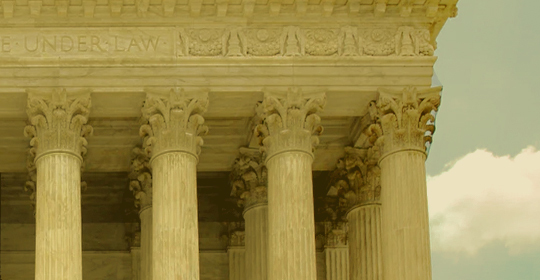Florida first-party insurance claim lawyer
Protect your rights and speak with an experienced insurance lawyer today.
Following a catastrophic event, the one thing that might provide a bit of comfort is knowing that you will eventually be able to recover. Many business owners establish this peace of mind by purchasing a commercial insurance policy. However, their next stop is sometimes a business interruption lawyer. Policyholders expect that their insurance company will be on their side. For example, business owners should reasonably expect that first-party insurance policies will protect their businesses and keep them afloat following unexpected disruptions. However, insurance companies can be incredibly difficult to work with, and they often do everything in their power to reduce payout amounts for policyholders. This is where a first-party insurance claim lawyer can step in and help. If you need legal representation due to a first-party insurance claim dispute, contact our Florida insurance lawyers today at (561) 655-1990.
Get a free consultation with a first-party insurance claim lawyer by calling
561-655-1990
How first-party insurance works
First-party insurance protects against losses or damages to the insured individual named on the policy (referred to as the first party). The protection comes in the form of financial payments from the policyholder’s insurance company (known as the third party). The first party policyholder could be an individual, a person’s family, occupants of a specific vehicle, or a company.
When the first-person policyholder files a claim, they file it directly against their own insurance company. What the first party is entitled to recover is outlined in the terms of the policy they and the insurance company agreed upon.
First-party insurance policies are contracts between the insured and their insurance company. As with any contract, each party carries its own responsibilities and obligations to the other. For example, let’s take a business owner who holds a first-party insurance policy for their business.

Most people will hold some sort of first party insurance policy in their lifetime. Common examples of first party insurance include:
- Personal injury protection (PIP) coverage
- Homeowner insurance
- Auto insurance
- Business insurance
- Health insurance
- Uninsured motorist coverage
- Renter’s insurance
- Life insurance
- Disability insurance
- Medical coverage under an auto insurance policy
After a disaster, policyholders expect their insurance companies to have their back
In theory, the business owner can reasonably expect that when a covered peril, such as a fire or natural disaster, disrupts their operations and negatively affects their revenue and profits, their business interruption insurance should cover their losses as they recover.
However, in this case, this business owner might realize that their insurance company is not on their side. In reality, insurance companies are just like any other for-profit business with the goal of maximizing profits and increasing their bottom line.
This business owner, having faithfully paid their insurance premium month after month, should be able to expect that their insurance company has their back. What they instead might face is a reduced payout, delayed payments, or even an outright denial of their claim.
However, the business owner in this example is not without options. They could contact an experienced first-party insurance claim lawyer to work on their behalf to ensure the insurance company holds up its end of the bargain.
Insurance companies don’t always act in good faith
Facing a claim denial, reduced payment, or delayed payment? Our firm can help. Policyholders expect that their insurance company will be there for them after an injury or disaster. After all, it’s part of the contract they agreed to in the first place. Although a person
could have taken all of the right steps, their insurance company may prove extremely reluctant to hold up their end of the contract.
When an insurance company fails to uphold its obligations to the first-party policyholder, they’re in breach of contract. Unfortunately, it’s not uncommon for a person or business to find themselves at odds with their insurance company.
When a disagreement arises over whether the third-party insurance company complies with the contract, the first party has the legal right to file a first-party insurance dispute. With the help of an experienced first-party insurance claim lawyer, such as a business interruption lawyer, the claimant can seek the coverage they’re owed.
What unlawful insurance practices do insurance companies engage in?
It’s important to note that the exact definition of bad faith insurance varies by state. Under Florida Statute 624.155, any person can file a civil action against an insurer when the first party is damaged in the following ways:
- When an insurer does not attempt to settle claims in good faith when, under all the circumstances, it could and should have done so, had it acted fairly and honestly toward its insured and with due regard for her or his interests;
- When an insurance company makes claims payments to insureds or beneficiaries not accompanied by a statement setting forth the coverage under which payments are being made; or
- Except for cases of liability coverage, the insurer fails to promptly settle claims, when the obligation to settle a claim has become reasonably clear.
If your claim has been denied or you are engaged in a first-party dispute with your insurance company, or you believe that your insurance company is acting in bad faith, contact our firm.
Why contact a first-party insurance claim lawyer?
Insurance law can be incredibly complex and difficult to navigate, especially when you’re going up against a powerful insurance company. These companies do not always have their customers’ best interests at heart. However, when you work with an experienced insurance claim lawyer, you can rest assured that you have a professional on your side who can level the playing field.
Our firm retains talented and specialized staff, such as business interruption lawyers and first-party claims lawyers. We deal with insurance companies day in and day out and know what tactics they’ll engage in to give you the run-around.
You’ll need to file a legal claim within the period specified by Florida’s statute of limitations

Some common bad faith practices our firm sees insurance companies engage in to reduce or deny insurance payments include:
- Intentionally misrepresenting policy provisions by using unreasonable policy language translations
- Underpaying reasonable insurance claims
- Flat out denial of valid insurance claims
- Failure to acknowledge insurance claims promptly
- Failure to thoroughly investigate a claim in an adequate manner
- Failure to provide a reasonable explanation of claim denial or delay
Our experienced bad faith insurance lawyers can review your case at zero cost to you. We’ll make sure that your rights are protected and that your insurance company is held accountable for its duties to you according to your policy.
Contact a skilled first-party insurance claim lawyer today
Are you a policyholder dealing with a first-party insurance claim dispute? If so, don’t hesitate to bring in a legal representative who can fight for your rights in the wake of a disaster or injury. As your legal counsel, we can handle the details and documentation needed to prove a claim has been unfairly denied or reduced.
It can be incredibly overwhelming and frustrating to go up against a big insurance company alone. But you don’t have to do it by yourself. With a knowledgeable and experienced insurance lawyer on your side, we can fight for your entitlement to funds based on your policy.
Lytal, Reiter, Smith, Ivey & Fronrath has a history of fighting aggressively on behalf of policyholders who have been wronged by their insurers.
Schedule a risk-free consultation today. Contact our Florida first-party insurance claim lawyers at (561) 655-1990 to schedule your appointment. We look forward to speaking with you.
Discover your legal options today.
Our Recent Settlements



Discover your legal options today.Don't pay for someone else's negligence. Let us help.
"*" indicates required fields
Office Locations
-
515 N Flagler Dr 10th floor
West Palm Beach, FL 33401 -
110 SE 6th St
Ste 1410
Fort Lauderdale, FL 33301 -
2200 Broadway Space 301
Fort Myers, FL 33901
-
1850 SW Fountainview Blvd Ste 207
Port St. Lucie, FL 34986 -
150 E Palmetto Park
Suite 840
Boca Raton, FL 33432
- Phone: (561) 655-1990
- Fax: (561) 832-2932
- Español: (561) 833-1964
- EMAIL: info@foryourrights.com
COPYRIGHT © 2024 LYTAL, REITER, SMITH, IVEY & FRONRATH
PRIVACY POLICY
Important Notice: Safety is our top priority at Lytal, Reiter, Smith, Ivey & Fronrath. You can access our services from home via phone, online chat, Facetime, or Zoom. Our aim is to provide justice while safeguarding everyone’s health.
Developed and Optimized by



